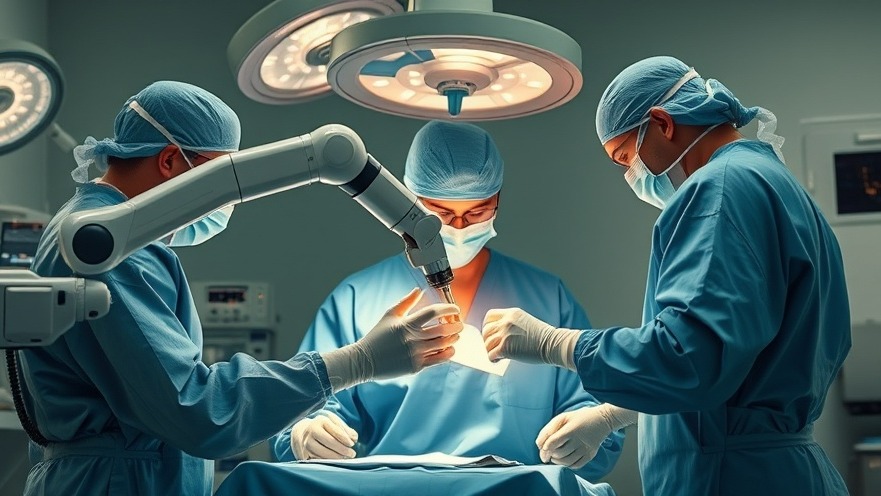
Revolutionizing Throat Cancer Surgery with Robotics
A groundbreaking pilot study at King's College London has spotlighted the incredible potential of robotic surgery for throat cancer treatment. This innovation marks a pivotal shift toward minimally invasive techniques that promise to enhance patient outcomes and comfort while minimizing recovery times. The Versius Surgical System, developed by CMR Surgical, has opened new avenues in transoral robotic surgery (TORS), a technique that empowers surgeons to remove tumors from the throat without resorting to traditional invasive surgeries.
Understanding Transoral Robotic Surgery
TORS is becoming a preferred method due to its ability to operate within the confines of the mouth, an essential factor when working with head and neck cancers. The recently published study evaluated the efficacy of the Versius system over an eight-month period, during which experienced surgical teams performed 30 robotic procedures—15 dealing with benign growths and the other 15 involving cancerous tumors. Remarkably, all surgeries were completed without significant complications, underscoring the system's reliability and efficacy.
The IDEAL Framework: Ensuring Surgical Innovation
This study employed the IDEAL framework, which is designed to systematically evaluate surgical innovations by moving from simpler, benign cases to more complex cancerous conditions. Such a methodical approach not only refined the surgical techniques but also adapted the robotic system to accommodate the intricate anatomy of the oropharynx. This careful calibration signifies a commitment to safety and excellence in patient care.
Simultaneity: Elevating Robotic Precision
The standout feature of the Versius system is its capability for four-arm robotic surgery. This innovative approach allows three instruments and a camera to operate simultaneously, greatly improving surgical precision and reducing the burden on bedside assistants. Such efficiency can crucially enhance surgical workflows, although some challenges remain, especially in tight anatomical spaces like the tongue base, mandating further system refinements.
Feedback from the Operating Table
Surgeons participating in the trial offered constructive feedback, highlighting that while the system was successfully utilized, certain elements required further refinement—particularly the bulkiness and precision of some surgical instruments. Notably, there is a call for the development of TORS-specific tools, such as a monopolar spatula, which is a staple in various other robotic systems. This feedback is invaluable for iterating and enhancing robotic surgical technologies further.
Future Directions: A Call for Multi-Center Studies
The promising results of the study establish a foundation for continued research. The surgical team at King's College London recommends initiating more extensive multi-center research to validate the findings further and enhance the understanding of the Versius system's efficacy across varied populations. This approach may help define best practices and establish comprehensive guidelines for implementing robotic surgery in diverse clinical settings.
Implications for Concierge Healthcare Practitioners
For concierge health practitioners, staying abreast of such surgical advancements is crucial, as it may impact clinical decisions and patient care pathways. The potential for robotic surgery to enhance patient outcomes and reduce recovery time signifies an essential evolution in treatment modalities that clinicians should consider. The emerging technology enables not only more efficient surgeries but also opens the door to a broader scope of minimally invasive options for patients.
Your Role in Embracing Robotic Innovation
As healthcare continues to evolve rapidly, practitioners must advocate for advancements that improve patient care. Sharing information with peers about the continual developments in robotic surgery can aid in creating an informed network that seeks to leverage technological innovations for better health outcomes. Robotics in healthcare is here to stay, and its proper integration will depend significantly on collaborative efforts across the medical community.
Stay informed, embrace these advancements, and consider how the integration of robotic surgery can be beneficial for your practice and your patients.
 Add Row
Add Row  Add
Add 






Write A Comment